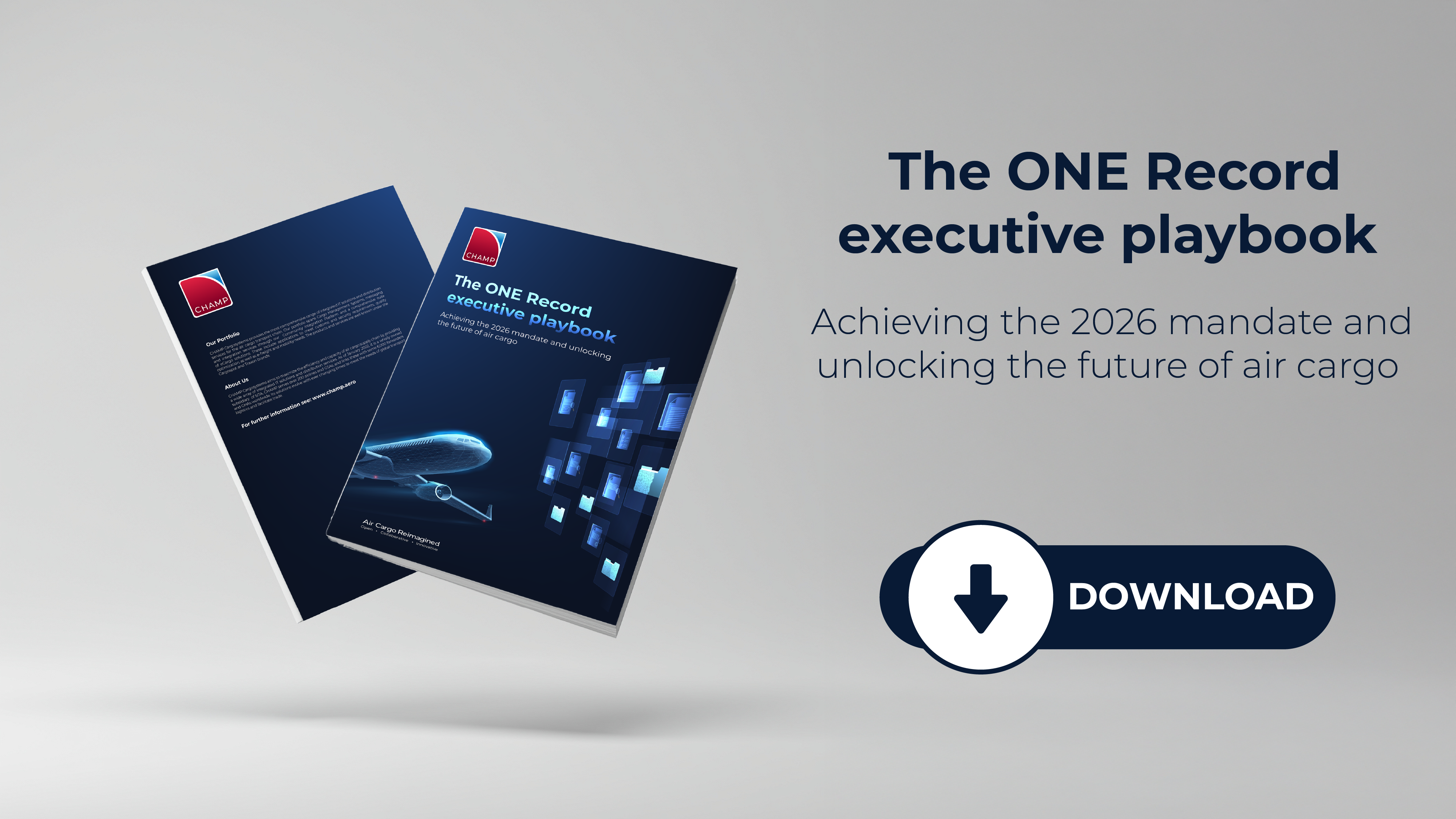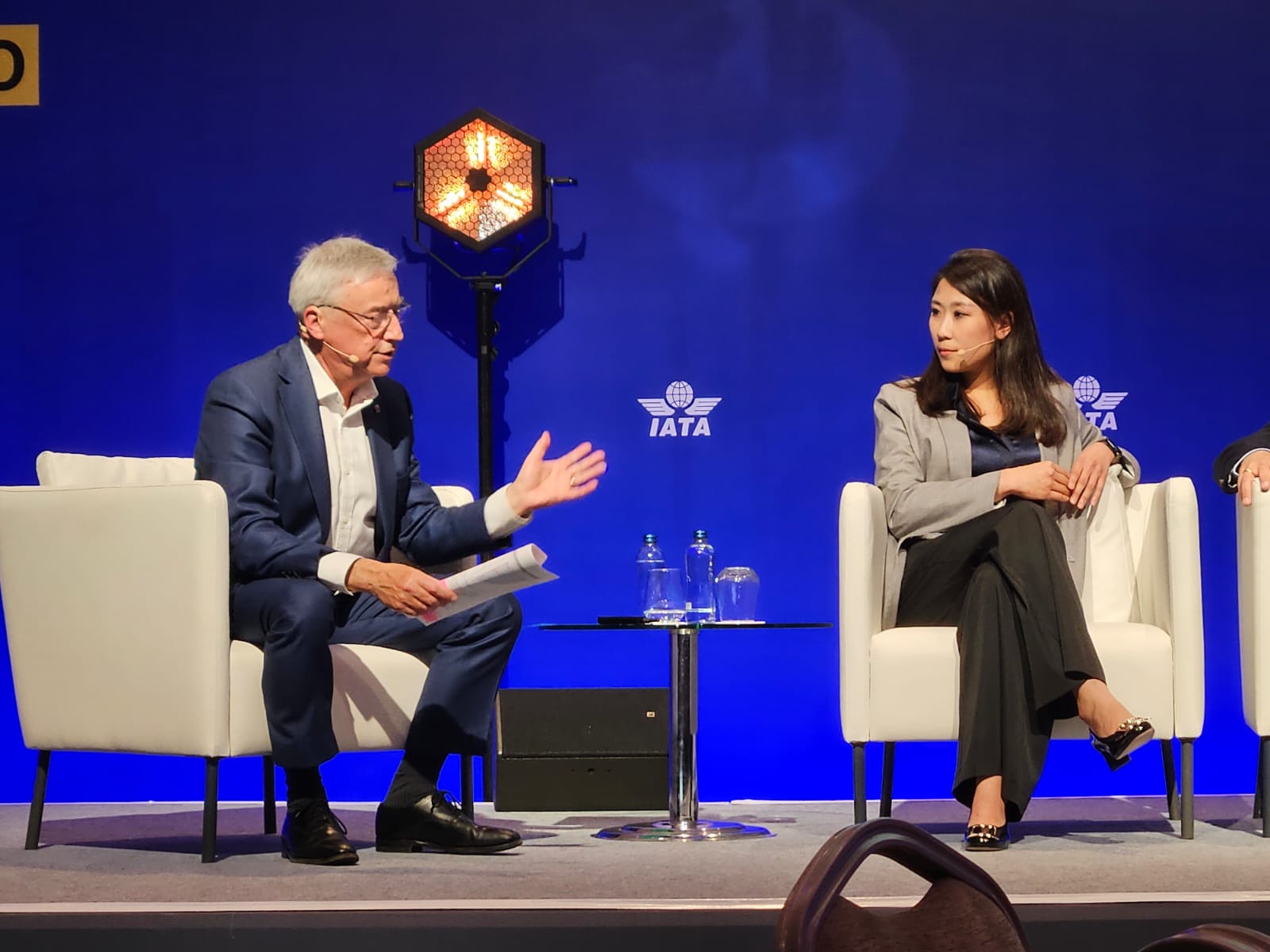Over 1,200 air cargo industry leaders met at this year’s IATA World Cargo Symposium in Istanbul. The agenda focused on updates and discussions around digitization, safety & security, and sustainability.
CHAMP people were on-stage three times over the two full days, contributing their insights and shaping discussions. Links to the recordings of each session are included below.
CEO, Chris McDermott, joined the CEOs of LATAM Cargo and Turkish Cargo to discuss digitization and the role of artificial intelligence in a panel moderated by PROS. CCO, Nicholas Xenocostas, gave his perspective on the key focus areas for the industry to Air Cargo News. Head of Business Development, Christopher Shawdon, led a discussion of ONE Record with senior representatives from Cathay Cargo, Lufthansa Cargo, and IBS Software. And CHAMP’s Senior Business Analyst for Weight and Balance, Khaled Chamsuddine, showcased how his solution handles special loads in the Safety & Security track.
The digitization and AI panel
Chris McDermott started his remarks by suggesting that “the pace of technology change is the slowest it’s going to be in future.” He said that CHAMP is seeing a lot of acceleration in the pace of change especially around the Internet of Things, smart labelling, and the use of APIs where he believes the company led the industry in processing well over 120 million calls during 2022. He also highlighted that organizations need to attract the best talent and was excited to see how graduates joining CHAMP from university were bringing in new ideas and shaping developments.
Turkish Cargo’s CEO commented on the challenges from air cargo being a fragmented industry. Chris suggested that it was therefore key to articulate the ‘wins’ for individual stakeholders from working collaboratively. He said that comes by focusing on points of delay, including for customs checks, and smoothing integration across the whole supply-chain.
Asked to share a piece of advice, LATAM Cargo’s CEO suggested that everyone should learn from failures. Turkish Cargo’s CEO presented the statement that, without data, all you have is an opinion. McDermott suggested that the problems facing air cargo have been tackled by other industries, so to look outside for ideas.
You can see the discussion here.
Key focus areas for air cargo
In an interview with Air Cargo News on the key focus areas for air cargo, Nicholas Xenocostas suggested three, starting with further collaboration and integration. His second point was the need to embed new technologies like artificial intelligence and IoT into processes in order to drive efficiencies. And that would support the third key focus area – the need to attract new talent and ideas.
You can see the interview here.
Full implementation of IATA ONE Record by 2026. Are you ready?
Christopher Shawdon introduced this panel by focussing on three questions from the title. First, what is ONE Record (1R); what is the new value and who needs it? Second, what does full implementation by 2026 mean? And third, what are the technology and change management issues in reaching widespread adoption?
Jan-Wilhelm Breithaupt, Vice President Global Fulfillment Management at Lufthansa Cargo described 1R as a state of the art way to transport far more data than can be carried by existing messaging. He cited e-AWB where his company is close to 100%, but that there are thirty other documents that are not digitized. Ingrid Lee, Head of Cargo Digital, Cathay Pacific added that it would enable greater speed and transparency through the supply chain, and meet the new expectations of shippers. Ashok Rajan, SVP - Global Head Cargo & Logistics solutions at IBS Software made the analogy with SWIFT as a way to exchange money between banks, replacing the movement of cash. He saw 1R as the enabler to unlock the air cargo industry’s full potential.
Shawdon asked the audience for a show of hands if they were using 1R and found fewer than a dozen in a room of several hundred people. By contrast, Lee said that Cathay Cargo has a live 1R service around tracking devices such as of containers. Breithaupt started their first trial with DB Schenker over two years ago and are going live with a service connecting to several airports in mid-2023. Another 1R service provides trucker pre-advice. Rajan cited an example for a carrier that provides smart tagging of high-value liquor bottles. By providing that level of transparency, the carrier has become the largest provider for the shipper.
You can see the full discussion here starting at 0:00. Two weeks later CHAMP and Lufthansa Cargo announced a joint commitment to ONE Record.
Handling special loads through a weight and balance solution
Khaled Chamsuddine described that some airlines still take more than an hour to calculate weight and balance from individual load sheets using Excel. A modern digital solution helps carriers save time, optimize fuel consumption, and enhance safety and security. But for particularly heavy loads, something else is needed.
For special loads, he described an enhancement made for Silkway West’s 747-8 aircraft as an example. Their need was to handle special loads which were heavier than could be put on a pallet and so needed to be strapped to the aircraft frame. The solution tells operators where to put the load, how many straps are required in each direction, and where to attach them in the aircraft structure. The functionality will be fully implemented soon in the standard Weight & Balance service meaning one view for an aircraft with special and non-special loads.
You can see Khaled’s presentation here starting at 21:09.
PS
Other WCS conference sessions of general interest included IATA’s economic outlook and an update from Seabury on air cargo market dynamics.
.png?width=72&height=72&name=CHAMP-Logo-RGB-Full-Color-100x100%20(1).png)




